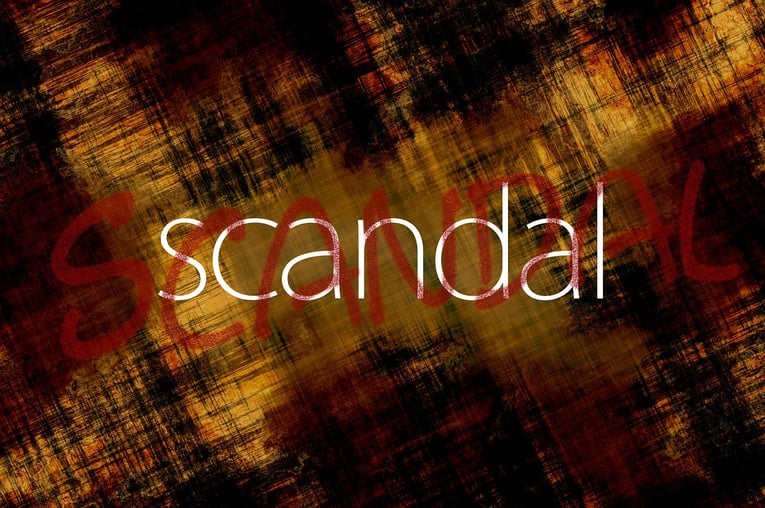
One of our nonprofit clients recently found themselves on the horns of this dilemma:
A long-term faithful donor had been indicted for bank fraud. Should the nonprofit return his most recent donation, and should they take his name off the scholarship he had been funding to educate young girls from Malawi out of the circle of poverty?
A Definition of Terms
- A tainted donor is a previously clean benefactor who has become socially unacceptable because of scandal. Most nonprofits when presented with this development will investigate first to discover if the donor’s most recent donations were tainted as well.
- A tainted donation is money that was derived illegally or through a socially unacceptable manner. If the donation was also tainted by the scandal the decision to return it is self-evident. No nonprofit could retain its reputation if it was known to be accepting ill-gotten gains.
Discussion
The discussion that ensued revealed the complexity of the problem.
- Does any hint of scandal automatically disqualify (taint) a previously acceptable donor?
- Are all donations from a tainted donor likewise tainted?
- What about past donations from a recently tainted donor?
- When a donor becomes embroiled in scandal must his name be removed from any honorarium (buildings, scholarships, etc.) connected with the nonprofit?
- What would and should prompt a nonprofit to return a donation that has been accepted in good faith?
- What if the donor’s scandal has nothing to do with money or the mission of the nonprofit?
- What about donations from tainted donors who give money that is apparently clean?
- How incongruent is the nature of the scandal with the core values of the nonprofit?
Options
In the case of a previously honored benefactor who subsequently becomes tainted, a nonprofit has three options:
- It can return the donation and remove the public acknowledgement.
- It can keep the money but remove the public acknowledgement.
- Or, it can keep the money and continue to publicly acknowledge the benefactor.
Does It Depend on How You Look at It?
 Nonprofits are required to consider the options above when a donor becomes tainted with scandal. Some nonprofits have taken a bold stand when it comes to accepting donations, stating that money has no pedigree or history or that money’s pedigree or history are irrelevant. Mother Teresa, for example, willingly accepted donations from any source, including despots and unsavory political leaders. She argued that the ill-gotten gains were being used to aid the destitute in Calcutta. That was her business and nothing else.
Nonprofits are required to consider the options above when a donor becomes tainted with scandal. Some nonprofits have taken a bold stand when it comes to accepting donations, stating that money has no pedigree or history or that money’s pedigree or history are irrelevant. Mother Teresa, for example, willingly accepted donations from any source, including despots and unsavory political leaders. She argued that the ill-gotten gains were being used to aid the destitute in Calcutta. That was her business and nothing else.
Or Does It Depend on How Others Look at It?
 Nonprofit managers are required to consider how accepting donations from “tainted” donors will impact all stakeholders. Interested donors at large, employees, donors already participating, mission benefactors and government regulators are all stakeholders. The question that must be asked and answered when all stakeholders are considered is how incompatible are the nonprofit’s goals with the action that tainted the donor?
Nonprofit managers are required to consider how accepting donations from “tainted” donors will impact all stakeholders. Interested donors at large, employees, donors already participating, mission benefactors and government regulators are all stakeholders. The question that must be asked and answered when all stakeholders are considered is how incompatible are the nonprofit’s goals with the action that tainted the donor?
An organization’s very legitimacy might be called into question, for example, when a subsidized housing complex accepts a donation from a slum landlord, or the cancer society accepts money from a tobacco firm. Here, congruity is at issue regardless of scandal. When incongruity and scandal are both in play, the issue of how all stakeholders will see it becomes even more important.
Reputation
For a nonprofit, reputation is everything. Without it, the mission energy disappears. When nonprofit managers are faced with the “tainted donor” and “tainted donation” issue, they must first consider the impact on their organization’s reputation. Money is important to a nonprofit, but reputation is crucial.

